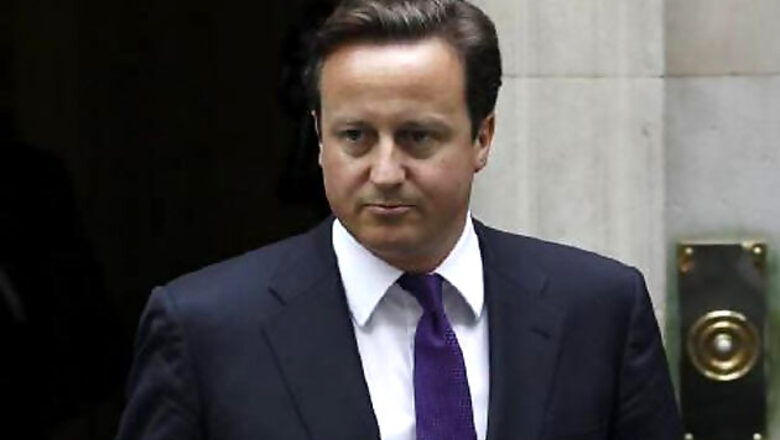
views
Prime Minister David Cameron recalled parliament to debate Britain's response to a suspected chemical weapons attack in Syria as he began to make the case for targeted military action to punish and deter President Bashar al-Assad.
Stressing he had not yet taken a decision either way, Cameron condemned last Wednesday's reported chemical attack in the suburbs of Damascus as "ghastly".
"This is not about getting involved in a Middle Eastern war or changing our stance in Syria or going further into that conflict," Cameron told reporters in his first public comments on the matter. "It's about chemical weapons. Their use is wrong and the world shouldn't stand idly by."
Cameron's decision to recall parliament came after his spokesman said plans were being drawn up for possible military action. It sets the stage for a tough debate on Thursday that will end in a vote, the outcome of which remains uncertain.
The result is likely to depend on the wording of the motion, and government sources said Cameron would need to work hard to convince doubters across the political spectrum.
He used his official Twitter feed on Tuesday to say any response had to be legal, proportionate and specifically to deter the use of chemical weapons.
Many lawmakers in Cameron's governing Conservative party are sceptical about the idea of military intervention after what they regard as costly and unsuccessful operations in Iraq and Afghanistan.
Nick Clegg, the leader of Cameron's junior coalition partner, the Liberal Democrats, indicated he agreed with Cameron, saying Britain wanted to send "a clear signal" that the use of chemical weapons was "simply intolerable".
"What we are not considering is regime change, trying to topple the Assad regime, trying to settle the civil war in Syria one way or another. That needs to be settled through a political process," said Clegg.
Ed Miliband, the leader of the opposition Labour party, met Cameron on Tuesday. He said afterwards his party would consider supporting military action as long as it had clear and achievable military goals.
Cameron cut short his holiday to return to London and will chair a meeting of Britain's National Security Council on Syria on Wednesday. He is expected to keep talking to other world leaders to ensure any response is coordinated.
Writing in The Times newspaper, former Prime Minister Tony Blair, who ordered British troops into Iraq and Afghanistan, said the West had to stop its "hand-wringing" and act.
A failure to intervene would leave Syria "mired in carnage" as a more dangerous breeding ground for extremism than Afghanistan in the 1990s, he said.
General David Richards, the former Chief of Britain's Defence Staff, told The Sun newspaper the scale of involvement to make a decisive difference was so huge it was not something that Britain could "sensibly contemplate" at the moment.
Cyprus' foreign minister said he did not expect a British airbase on the Mediterranean island to play a major role in any military strike, while a government spokesman said he could not comment on British reports the bases would be used.













Comments
0 comment